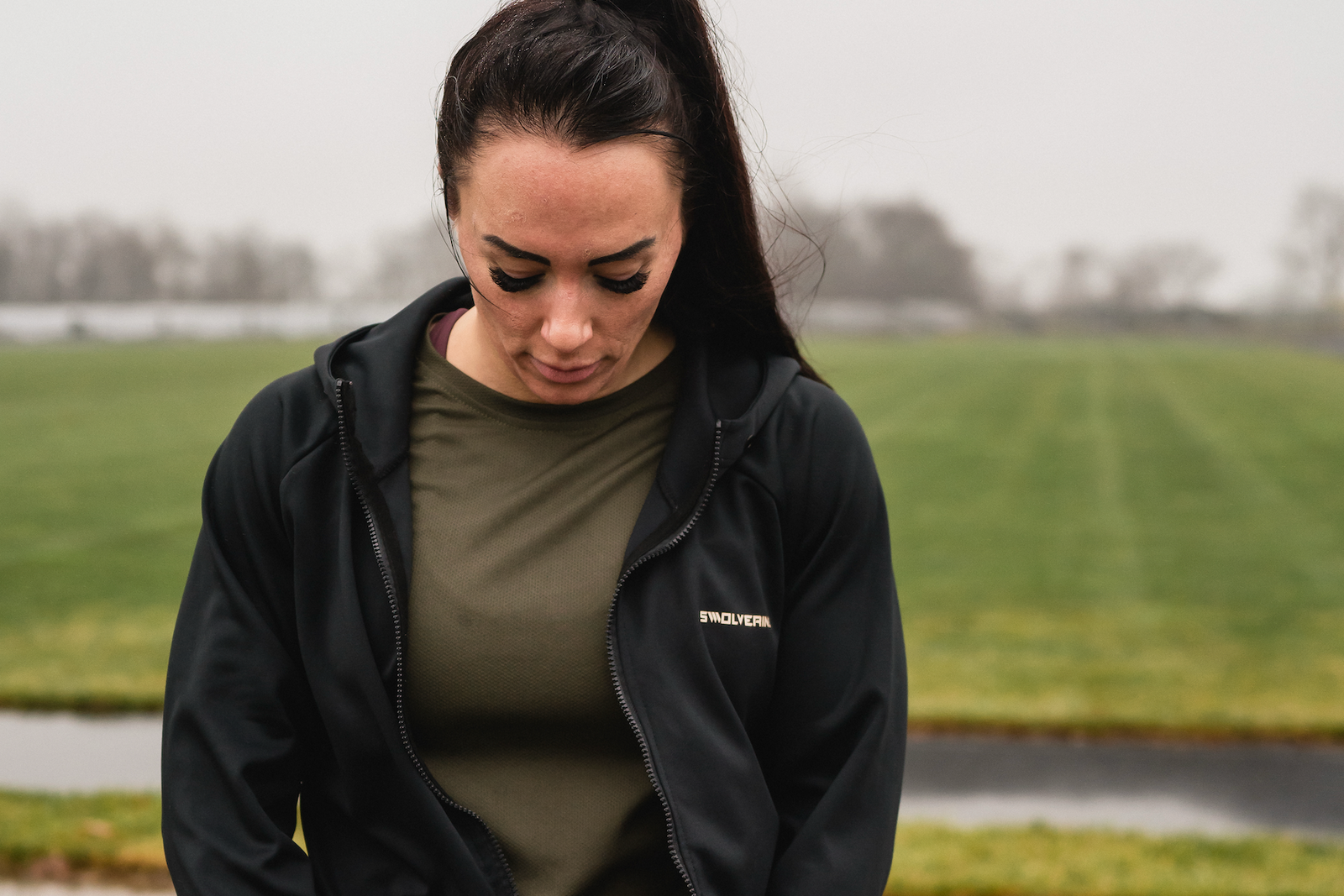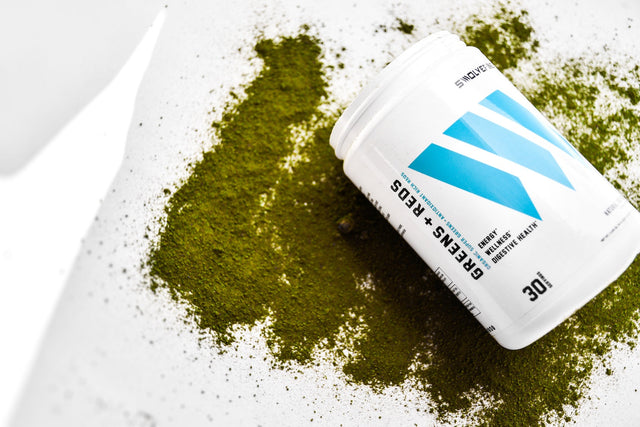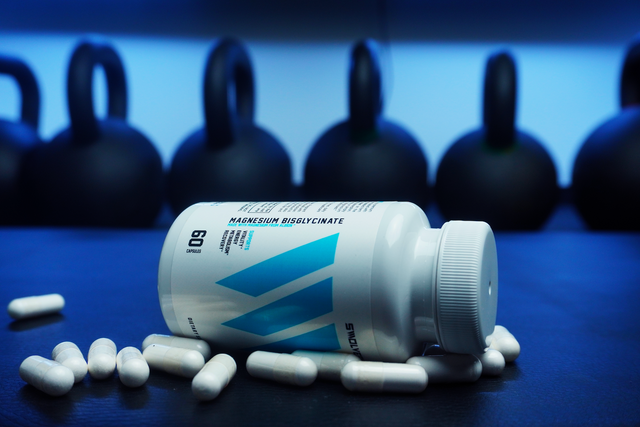Whether whispered in the locker room or debated on social media, steroids remain one of the most controversial—and misunderstood—topics in fitness. Are they as dangerous as people say? Do they actually work? Who’s really using them? And what are the risks, the rewards, and the science behind the scenes?
In this ultimate guide, we’re cutting through the noise and giving you the facts. No fluff, no fear-mongering, and definitely no BS. From performance enhancement and muscle growth to side effects, legality, and real-world use, this guide dives deep into the truth about anabolic steroids. If you've ever been curious, skeptical, or just want to separate fact from fiction about steroids, this ultimate guide will answer all your questions you’ll want to read start to finish.
Let’s break it all down—honestly, transparently, and with science to back it up.
What Are Anabolic Steroids and How Do They Work?
What Are Anabolic Steroids?
Anabolic steroids, also known as anabolic-androgenic steroids (AAS), are synthetic derivatives of testosterone, the primary male sex hormone. These compounds are designed to mimic the anabolic (muscle-building) and androgenic (masculinizing) effects of testosterone in the body.
Anabolic steroids are used both medically and non-medically. Medically, they are prescribed to treat conditions like delayed puberty, muscle wasting in chronic illnesses, and low testosterone levels. Non-medically, they are often used by athletes and bodybuilders to enhance muscle growth, strength, and performance.
“AAS are synthetic compounds derived from testosterone designed to maximize anabolic effects and minimize androgenic effects.” — Basaria, New England Journal of Medicine, 2010
How Do Anabolic Steroids Work?
Anabolic steroids work by binding to androgen receptors in cells, particularly in muscle tissue, where they influence gene expression and stimulate protein synthesis, muscle growth, and recovery.
Here’s how the process works:
1. Androgen Receptor Binding
After entering the bloodstream (via injection, oral ingestion, or transdermal methods), anabolic steroids bind to androgen receptors (ARs) inside muscle cells. This steroid-AR complex is then transported into the nucleus, where it interacts with specific DNA sequences.
“Once inside the nucleus, the steroid–receptor complex binds to hormone response elements, activating transcription of target genes.” — Kicman, British Journal of Pharmacology, 2008
2. Increased Protein Synthesis
Steroids increase muscle protein synthesis, leading to enhanced muscle hypertrophy and reduced muscle breakdown. This anabolic effect is what makes steroids appealing to those seeking gains in strength, size, and athletic performance.
AAS also inhibit glucocorticoid hormones (like cortisol), which can break down muscle tissue.
3. Nitrogen Retention and Muscle Growth
Steroids improve nitrogen balance in muscle tissue. Since muscles are made of protein (which contains nitrogen), retaining more nitrogen creates a favorable environment for anabolism (muscle-building).
4. Red Blood Cell Production (Erythropoiesis)
Testosterone and its synthetic derivatives stimulate the production of erythropoietin, increasing red blood cell count and improving oxygen delivery to muscles—enhancing endurance and recovery.
“AAS increase hemoglobin concentration and hematocrit, thus improving oxygen delivery to tissues.” — Thiblin et al., Current Neuropharmacology, 2011
Other Physiological Effects
While anabolic steroids are primarily used for muscle growth, they also influence:
-
Libido and mood
-
Bone density
-
Fat distribution
-
Recovery from injury
-
Neurological function
Side Effects and Risks of Anabolic Steroids
Despite their powerful effects, AAS use carries serious risks, especially with long-term or high-dose use. Common side effects include:
-
Hormonal imbalances (e.g., testosterone suppression, gynecomastia)
-
Liver toxicity (especially with oral steroids like Dianabol or Anadrol)
-
Cardiovascular issues (e.g., increased LDL, reduced HDL, hypertension)
-
Mood changes (e.g., aggression, irritability, depression)
-
Acne and oily skin
-
Infertility and testicular atrophy
-
Virilization in women (deepened voice, facial hair, menstrual disruption)
A systematic review in PLOS ONE by van Amsterdam et al., 2020 linked long-term AAS use with increased risk of early death, cardiovascular disease, and psychiatric disorders.
Are Anabolic Steroids Legal?
-
In the United States, anabolic steroids are classified as Schedule III controlled substances under the Anabolic Steroid Control Act of 1990.
-
They are illegal to possess or distribute without a valid prescription.
-
In competitive sports, AAS are banned by the World Anti-Doping Agency (WADA) and most sporting bodies.
The Truth About Anabolic Steroids: Side Effects You Didn't Expect
Anabolic-androgenic steroids (AAS) are synthetic derivatives of testosterone used for muscle growth, strength enhancement, and performance. But with their powerful effects come a complex range of potential side effects—some obvious, others more surprising. In this science-backed guide, we answer some of the most frequently asked questions about the effects of anabolic steroids on the body.
Can Anabolic Steroids Cause Constipation?
Not directly. Constipation is not a commonly reported side effect of anabolic steroid use. However, AAS may indirectly impact digestion through dehydration, reduced gastrointestinal motility (via sympathetic nervous system stimulation), or as a result of stacking with other substances (e.g., painkillers, SARMs, or fat burners).
Sources:
Can Anabolic Steroids Raise Blood Pressure?
Yes. AAS use is associated with elevated blood pressure due to fluid retention, increased red blood cell mass (which thickens the blood), and structural changes to the heart. Long-term use increases the risk of left ventricular hypertrophy and hypertension.
Sources:
Can Anabolic Steroids Cause Hair Loss?
Yes, particularly in those genetically predisposed. AAS like testosterone, trenbolone, and dianabol can increase levels of dihydrotestosterone (DHT)—a powerful androgen linked to androgenic alopecia (male-pattern baldness).
Sources:
Can Anabolic Steroids Keep You Awake?
Yes. AAS can lead to insomnia and disrupted sleep patterns due to elevated dopamine and norepinephrine activity, increased aggression, and stimulation of the central nervous system. Users often report feeling more “wired” or hyper-alert, especially during cycles.
Sources:
Can Anabolic Steroids Help a Cough?
No. Anabolic steroids do not treat or relieve coughs. While corticosteroids are sometimes used in respiratory conditions, anabolic steroids serve no therapeutic role in treating respiratory infections, viral coughs, or inflammation.
Sources:
Can Anabolic Steroids Increase Heart Rate?
Yes. AAS can increase resting heart rate due to their impact on the autonomic nervous system and elevated levels of catecholamines. This can lead to tachycardia, especially during intense training or while “on cycle.”
Sources:
Can Anabolic Steroids Cause UTIs?
Indirectly, yes. While not a common direct effect, AAS suppress immune function, potentially making the body more susceptible to infections, including urinary tract infections (UTIs). Additionally, some users may experience prostate enlargement, which can contribute to urinary issues.
Sources:
Can Anabolic Steroids Cause Anxiety?
Yes. AAS are strongly linked to mood disturbances, including anxiety, aggression (aka 'roid rage'), paranoia, and even psychosis in extreme cases. These effects are typically dose-dependent and more common in users stacking multiple compounds.
Sources:
Can Anabolic Steroids Cause Headaches?
Yes. Headaches can result from blood pressure changes, fluid retention, or hormonal fluctuations while using AAS. This is especially common during the early stages of a cycle or when transitioning off-cycle.
Sources:
Can Anabolic Steroids Affect Your Period?
Yes. For women, AAS can disrupt the menstrual cycle, causing irregular periods or amenorrhea (absence of menstruation). This is due to suppression of gonadotropin-releasing hormone (GnRH) and subsequent downstream suppression of LH and FSH—key hormones in the menstrual cycle.
Sources:
Can Anabolic Steroids Cause Hot Flashes?
Potentially, yes. While not as common, hormonal instability from AAS—especially during PCT (post-cycle therapy)—can lead to hot flashes, night sweats, and body temperature fluctuations. These mimic estrogen withdrawal symptoms.
Sources:
Can Anabolic Steroids Make You Itchy?
Yes. Some users experience itchiness due to hormonal changes, increased oil production, acne, or allergic reactions to carrier oils in injectable steroids (e.g., ethyl oleate or sesame oil). Itchiness can also signal liver stress or jaundice in extreme abuse cases.
Sources:
Do Anabolic Steroids Help or Harm? Here's What the Science Says About Their Effects on Blood Sugar, Colds, Pain, and More
Anabolic steroids are widely used in the fitness and bodybuilding community to boost muscle mass and performance. But when it comes to their impact on broader health—like blood sugar, immunity, or pain relief—misinformation runs rampant. Unlike corticosteroids, which are prescribed for inflammation, anabolic steroids are not intended to treat illness, and their misuse may cause unintended health complications. Below, we break down the most frequently asked questions about anabolic steroids and their real effects—backed by science.
Will Anabolic Steroids Raise Blood Sugar?
Yes. AAS can cause insulin resistance and disrupt glucose metabolism, leading to elevated blood sugar levels. This is particularly true with long-term use or in those predisposed to metabolic disorders. AAS increase visceral fat and impair insulin signaling, which can raise the risk of developing type 2 diabetes.
Sources:
Will Anabolic Steroids Make You Sweat?
Yes. Increased sweating (hyperhidrosis) can occur due to AAS’s effects on metabolism, thermoregulation, and central nervous system stimulation. Night sweats and excessive daytime perspiration are common, especially with high-androgen compounds like trenbolone.
Sources:
Will Anabolic Steroids Help a Sinus Infection?
No. Anabolic steroids have no antibacterial, antiviral, or anti-inflammatory properties relevant to treating sinus infections. Corticosteroids may sometimes be used in medical settings to reduce sinus inflammation, but AAS offer no benefit and could impair immune response.
Sources:
Will Anabolic Steroids Help Bronchitis?
No. AAS do not treat bronchitis and could weaken immune function, potentially prolonging recovery. Inhaled corticosteroids, not anabolic steroids, are sometimes used to reduce airway inflammation in chronic bronchitis or asthma, but this is an entirely different class of medication.
Sources:
Will Anabolic Steroids Raise Your Blood Pressure?
Yes. This is one of the most consistently observed side effects of AAS use. They elevate blood pressure by increasing red blood cell count, plasma volume, and sodium retention, placing stress on the cardiovascular system.
Sources:
Will Anabolic Steroids Help a Cold?
No. AAS will not help alleviate cold symptoms. In fact, they may make symptoms worse by suppressing immune function. Unlike corticosteroids, which may be used to reduce inflammation in the nasal passages in severe cases, anabolic steroids have no therapeutic benefit for colds.
Sources:
Will Anabolic Steroids Help Back Pain?
No. While corticosteroids may be prescribed in specific medical cases to reduce inflammation causing back pain, anabolic steroids do not offer pain relief or anti-inflammatory effects. They may even worsen musculoskeletal issues by altering connective tissue strength, increasing injury risk.
Sources:
Will Anabolic Steroids Help Sciatica?
No. Sciatica is caused by nerve compression, inflammation, or herniated discs. Anabolic steroids do not treat nerve inflammation, and using them for this purpose can delay appropriate care. Corticosteroid injections (not AAS) are sometimes used in clinical settings to manage acute sciatica pain.
Sources:
Will Anabolic Steroids Help a Sore Throat?
No. Sore throats are most often caused by viral or bacterial infections, and AAS have no immune-modulating or analgesic properties to alleviate them. Suppressed immune response from AAS may even increase vulnerability to infection.
Sources:
Will Anabolic Steroids Help the Flu?
Definitely not. The flu is a viral infection, and using anabolic steroids can impair immune function, making it harder for your body to recover. Some studies suggest chronic AAS users have higher rates of infections due to dysregulated white blood cell activity.
Sources:
Will Anabolic Steroids Help with Pneumonia?
No. Pneumonia requires antibiotic or antiviral treatment depending on the cause. AAS are not therapeutic in this context, and their immune-suppressive effects may increase severity and duration of respiratory infections like pneumonia.
Sources:
What Steroids Really Do: The Facts Behind Performance, Health, and Celebrity Use
Steroids are often misunderstood, sensationalized, or glamorized—especially in fitness and Hollywood culture. From what they do in the body to what famous athletes and actors have allegedly used, this section breaks down the most frequently asked questions about steroids, including both anabolic steroids and prescribed corticosteroids—backed by real science and transparency.
What Do Anabolic Steroids Do?
Anabolic-androgenic steroids (AAS) are synthetic versions of testosterone that increase muscle mass, strength, protein synthesis, red blood cell production, and overall performance. They also carry androgenic effects like deepening of the voice, hair growth, and libido changes.
Sources:
What Do Anabolic Steroids Do to the Body?
AAS alter the body's endocrine, cardiovascular, hepatic, and reproductive systems. Positive effects include muscle hypertrophy and fat loss. Negative effects can include:
-
Suppressed natural testosterone production
-
Elevated blood pressure
-
Liver toxicity (oral steroids)
-
Gynecomastia (due to estrogen conversion)
-
Mood changes and aggression
-
Infertility or testicular atrophy in men
Sources:
What Steroids Did Arnold Take?
Arnold Schwarzenegger has admitted to using anabolic steroids during his bodybuilding career when they were legal and not banned in competition. The compounds likely included:
-
Dianabol (Methandrostenolone)
-
Primobolan (Methenolone)
-
Possibly Testosterone derivatives
These were used under doctor supervision during the 1970s.
Sources:
What Steroids Cause TSW (Topical Steroid Withdrawal)?
TSW is caused by topical corticosteroids, not anabolic steroids. This condition develops when corticosteroids are used excessively or incorrectly, causing the skin to become dependent. Common culprits include:
-
Betamethasone
-
Hydrocortisone
-
Clobetasol propionate
Sources:
What Steroids Does Chris Bumstead (Cbum) Take?
Chris Bumstead, 5x Classic Physique Mr. Olympia, has not publicly disclosed his full cycle, but based on educated speculation and interviews, it likely includes:
-
Testosterone (base)
-
Masteron
-
Primobolan or Equipoise
-
Winstrol or Anavar (pre-contest)
-
GH or insulin is possible but unconfirmed
He is known for advocating for moderation and health-monitoring compared to mass monsters.
Sources:
What Steroids Do Actors Use?
Some actors reportedly use AAS to rapidly transform their physiques for roles, including:
-
Testosterone
-
Trenbolone
-
Winstrol or Anavar for cutting
-
HGH or insulin in some cases
Actors rumored to have used them (but not confirmed) include Hugh Jackman, Chris Hemsworth, and Kumail Nanjiani—but keep in mind, studios rarely disclose this info.
Sources:
What Steroids Do Doctors Prescribe?
Doctors do not prescribe anabolic steroids for performance. However, they may prescribe AAS for:
-
Hypogonadism (low testosterone) → Testosterone cypionate/enanthate
-
Wasting diseases (AIDS, cancer) → Oxandrolone (Anavar)
-
Delayed puberty or hormone deficiency
Doctors also prescribe corticosteroids (e.g., prednisone, dexamethasone) for inflammatory and autoimmune conditions.
Sources:
What Steroids Are Used for Pneumonia?
Corticosteroids, not anabolic steroids, are used in some pneumonia cases to reduce inflammation in severe or hospitalized patients. These include:
-
Prednisone
-
Methylprednisolone
-
Dexamethasone
Used cautiously due to risk of immunosuppression.
Sources:
What Steroids Cause Hair Loss?
Androgenic AAS like Dianabol, Winstrol, Trenbolone, and Testosterone can accelerate male pattern baldness due to increased DHT (dihydrotestosterone) activity.
The more androgenic a compound is, the greater the risk for hair loss—especially if you have a genetic predisposition.
Sources:
What Steroids Do Strongmen Take?
While not publicly confirmed, many elite strongmen are suspected to use advanced AAS stacks, potentially including:
-
Testosterone (high dose)
-
Trenbolone
-
Deca-Durabolin (Nandrolone)
-
Anadrol
-
HGH and insulin
The focus is often on mass, recovery, and joint support, with less concern for aesthetics.
Sources:
What Steroids Are Used for Bronchitis?
Only corticosteroids, such as prednisone, are used in certain cases of chronic bronchitis or COPD, and typically for short bursts to reduce airway inflammation. Anabolic steroids have no role in bronchitis treatment.
Sources:
What Steroids Did Ronnie Coleman Use?
Ronnie Coleman has stated he used steroids during his Mr. Olympia reign, which was legal and monitored at the time in IFBB. Speculated compounds include:
-
Testosterone enanthate
-
Dianabol
-
Anadrol
-
Insulin
-
HGH
-
Trenbolone and Deca-Durabolin
His cycles were aggressive but strategic, and he has spoken candidly about the risks involved.
Sources:
What Steroids Are Safe During Pregnancy?
No anabolic steroids are considered safe during pregnancy. AAS can disrupt fetal development, cause virilization of female fetuses, and increase risk of miscarriage. Even therapeutic corticosteroids are prescribed with extreme caution during pregnancy.
Sources:
Your Questions About Anabolic Steroids Answered
Anabolic steroids aren’t just gym talk or Hollywood gossip—they’re powerful compounds with very real impacts on your body, your hormones, and your long-term health. Whether you’re chasing performance, aesthetics, or just trying to understand the risks, education is your best defense. If you’re considering using AAS, make sure it’s a decision backed by knowledge, not impulse or peer pressure.
Your goals matter, but so does your health. There are smarter, safer ways to optimize your performance, balance your hormones, and build the physique you want—without risking your future. If you’re ready to take control of your results the right way, we’re here to help you every step of the way.
Explore safer solutions and expert guidance:
-
Get personalized coaching from The Swole Kitchen
Stay strong, stay smart—and remember: progress is best when it lasts.
Find similar articles:
Anabolics












